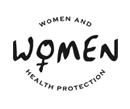FOR IMMEDIATE RELEASE
December 17, 2004
Mandatory Reporting of Adverse Drug Reactions: An important first step
Winnipeg MB - The Canadian Women's Health Network (CWHN) and the Women and Health Protection Working Group welcome the announcement by Federal Health Minister Ujjal Dosanjh calling for the introduction of mandatory reporting of adverse drug reactions by physicians and other health professionals. This is an important step that we hope signals a new approach to the regulation of prescription drugs.
Currently, health professionals are not obligated to inform Health Canada if they suspect a side effect from a prescription drug has caused a patient to become ill or die. We believe the present system fails to adequately protect Canadians from the harms caused by medicine. Although Canada is one of the few countries that allow reporting of drug reactions by patients, this avenue is not well known and therefore infrequently used.
While we support mandatory reporting of harms caused by drugs by health professionals, this cannot and should not replace adequate pre-market testing and transparent evaluation and safety reviews. Drugs should not be marketed unless they are safe, effective and offer additional benefits to patients over similar drugs already available. Although clinical trials are becoming more gender inclusive, there are still inadequate subgroup analyses, and too few comparative studies between and among drugs, non-medical interventions, and placebos.
Over the years women's health activists have been in the forefront of alerting the public to the harms caused by the Dalkon Shield, breast implants, DES and Depo Provera based on our own research and listening to the experiences of women. Drug safety is a critical issue for women. We are more likely to be prescribed drugs and to use drugs or devices as contraceptives. In pregnancy, the drugs we take can directly affect the health of fetuses. Women experience more chronic diseases that require medication. And women often have their life experiences viewed as needing medical intervention.
We believe that instituting mandatory reporting of adverse reactions by health
professionals is a positive step in improving the current post-market drug surveillance
system, but this change alone is not sufficient and should be seen as one in
a series of initiatives to improve the regulation of drugs and devices in Canada.
These include:
- Increased support for adverse drug reaction reporting, outreach and follow up by all relevant parties. This would include funding for women's and community health groups that have demonstrated a history of expertise in this area.
- The allocation of resources to support an improved system for consumer reporting of adverse drug reactions to Health Canada.
- A transparent publicly managed process for analysis of the data gathered from adverse drug reporting and from rigorous post-marketing surveillance.
- Improved product labeling that would allow consumers to have information about the drug including links to information about the research trials that supported the drug's release and access to the adverse reaction database.
- The introduction of probationary or provisional licensing for new drugs before they are released onto a wider public.
Canadians are often unaware of their role as unwitting research subjects when it comes to the use of new drugs. We deserve to have confidence that the drugs doctors prescribe are safe. Obliging health professionals to report any and all adverse effects from medication is an important first step in reaching this goal.
Contact:
Canadian Women's Health Network:
Madeline Boscoe, Executive Director at 204 942- 5500 ex. 11
Cell 204-295-2946 or,
Gwynne Basen 204 942- 5500 ex 20
Women and Health Protection:
Anne Rochon Ford 416-712-9459
For further information:
CWHN: www.cwhn.ca
WHP: www.whp-apsf.ca
PharmaWatch Adverse Drug Reaction Line: 604-687-6629 or 1-866-234-3411
Copyright ©2006-2010 Women and Health Protection
Supported by the Women's Health Contribution Program,
administered by the Gender and Health Unit of Health Canada.
In partnership with The Canadian Women's Health Network.

